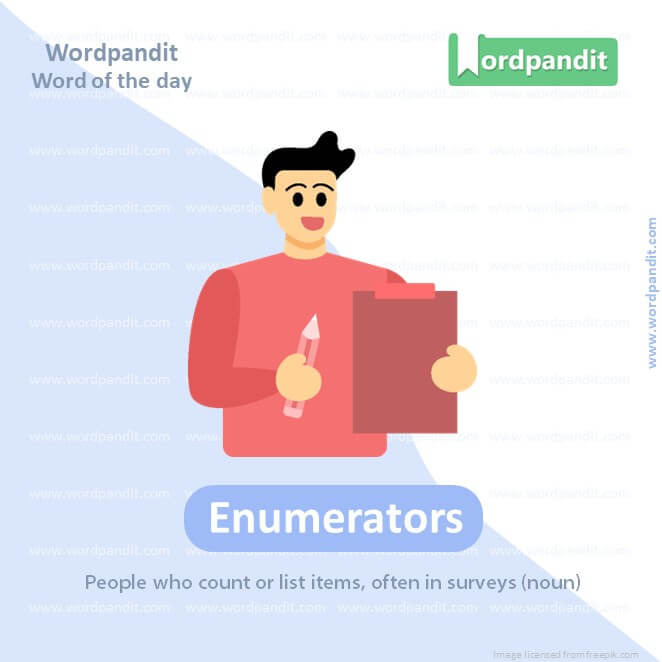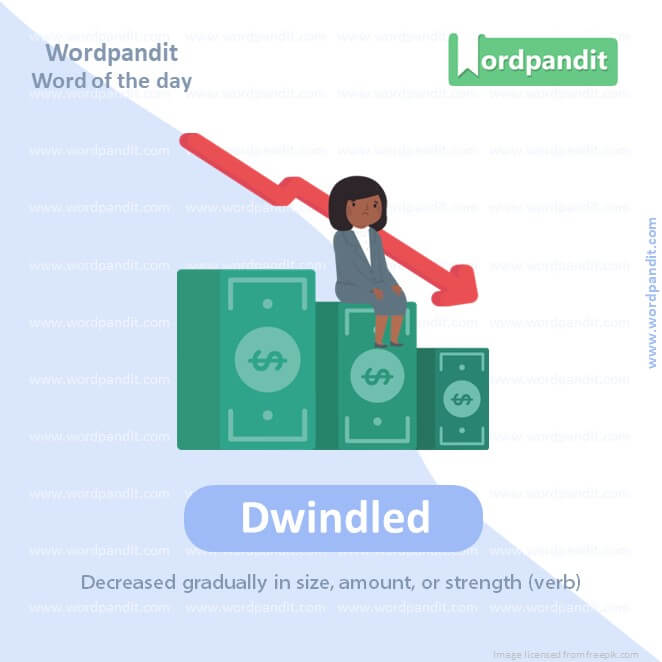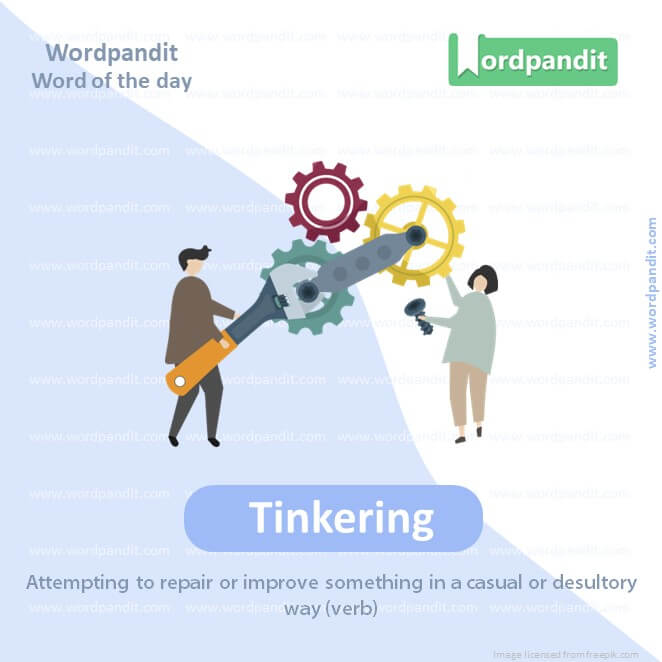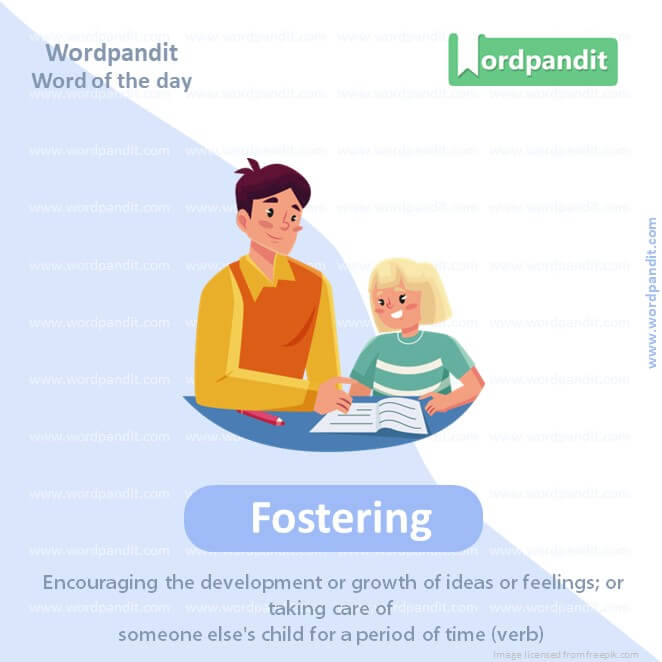Daily Vocabulary Words: List of Daily Used Words in Leading Indian Newspapers
Hi there. Welcome to this special section @ Wordpandit. Our endeavour here is straightforward: highlighting daily vocabulary words that you would come across in leading newspapers in the country. We have included the following newspapers in our selection:
• The Times of India
• The Economic Times
• Hindustan Times
• Mint
• Indian Express
We are putting in extensive work to develop your vocabulary. All you have to do is be regular with this section and check out this post daily. This is your repository of commonly used words; essentially, we are posting a list of daily used words. Hence, this has significant practical application as it teaches you words that are commonly used in leading publications mentioned above.
Visit the website daily to learn words from leading Indian newspapers.

WORD-1: Enumerators
CONTEXT: government enumerators clubbed all agrarian communities under this name.
SOURCE: Times of India
EXPLANATORY PARAGRAPH: Imagine you have a big box of colorful marbles, and you want to know how many there are in total. An “enumerator” is like a helper who counts each marble for you. They are the people who count things, especially in big surveys or lists.
MEANING: People who count or list items, often in surveys. (noun)
PRONUNCIATION: Eh-new-muh-ray-tors
SYNONYMS: Counter, Tallyman, Recorder, List maker, Numberer, Tabulator, Accountant
USAGE EXAMPLES:
1. The census employed several enumerators to gather data.
2. As an enumerator, John had to visit many homes.
3. Enumerators are trained to be accurate and precise.
4. The survey’s success depended on the dedication of its enumerators.

WORD-2: Bifurcated
CONTEXT: All was going well for the community till a few years ago when agriculture was remunerative. But with families growing in size, land had to be bifurcated.
SOURCE: Hindustan Times
EXPLANATORY PARAGRAPH: Imagine a road that splits into two separate paths. That’s what “bifurcated” means – something that divides or splits into two parts.
MEANING: Split or divided into two branches or parts. (verb/adjective)
PRONUNCIATION: Bye-fur-kay-ted
SYNONYMS: Divided, Branched, Forked, Split, Cleft, Parted, Dichotomized
USAGE EXAMPLES:
1. The bifurcated road led travelers to two different towns.
2. The river bifurcated, creating an island in the middle.
3. The tree had a bifurcated trunk that looked like a giant V.
4. The storyline bifurcated, introducing two different outcomes.

WORD-3: Dwindled
CONTEXT: Incomes dwindled and agriculture became increasingly less attractive.
SOURCE: Hindustan Times
EXPLANATORY PARAGRAPH: Imagine you have a big ice cream cone and it starts melting in the sun. After some time, there’s only a little bit left. That’s what “dwindled” means – something that becomes smaller or less over time.
MEANING: Decreased gradually in size, amount, or strength. (verb)
PRONUNCIATION: Dwin-dulled
SYNONYMS: Decreased, Diminished, Reduced, Lessened, Shrank, Declined, Waned
USAGE EXAMPLES:
1. My savings dwindled after I bought the expensive toy.
2. The crowd dwindled as the night progressed.
3. The enthusiasm for the project dwindled with time.
4. As winter approached, the days dwindled in length.

WORD-4: Tinkering
CONTEXT: They are responsible for making ATLs in their region and facilitating access to tinkering for schools.
SOURCE: Indian express
EXPLANATORY PARAGRAPH: Imagine you have a toy that’s broken, and you’re trying to fix it by playing around with its parts. That’s “tinkering” – when you play around with something to try and make it better or fix it.
MEANING: Attempting to repair or improve something in a casual or desultory way. (verb)
PRONUNCIATION: Tink-er-ing
SYNONYMS: Fiddling, Tampering, Meddling, Adjusting, Tweaking, Modifying, Repairing
USAGE EXAMPLES:
1. He spent his weekends tinkering with old cars.
2. Tinkering with the device made it work again.
3. She was always tinkering with her hair to make it perfect.
4. Dad is in the garage, tinkering with his toolbox.

WORD-5: Fostering
CONTEXT: Doing so will require embracing community participation by sharing power, fostering dialogue and providing resources.
SOURCE: Hindustan Times
EXPLANATORY PARAGRAPH: Imagine you find a lost puppy and take care of it, giving it love and a home until it finds a forever family. That’s “fostering” – when you take care of and help something or someone grow.
MEANING: Encouraging the development or growth of ideas or feelings; or taking care of someone else’s child for a period of time. (verb)
PRONUNCIATION: Fos-ter-ing
SYNONYMS: Nurturing, Cultivating, Encouraging, Promoting, Advancing, Supporting, Nourishing
USAGE EXAMPLES:
1. She’s fostering a sense of community in the neighborhood.
2. They’re fostering three kittens until they find permanent homes.
3. Fostering creativity is essential in the classroom.
4. The program aimed at fostering better relations between two communities.
WORD-6: Comorbidities
CONTEXT: these emissions pose a threat to the health of vulnerable populations, including children, the elderly and people with lung diseases and associated comorbidities.
SOURCE: Indian express
EXPLANATORY PARAGRAPH: Imagine your toy box has two broken toys. Just like those toys have different problems at the same time, sometimes people can have more than one health problem at once. Those health problems together are called “comorbidities.”
MEANING: Multiple medical conditions occurring in a person at the same time. (noun)
PRONUNCIATION: Co-mor-bid-ih-tees
SYNONYMS: Coexisting conditions, Concurrent disorders, Co-occurrences, Multiple illnesses, Overlapping diseases, Dual diagnoses, Combined ailments
USAGE EXAMPLES:
1. Diabetes and high blood pressure are common comorbidities.
2. Doctors need to be aware of potential comorbidities when treating patients.
3. She suffers from several comorbidities, which makes her treatment complex.
4. Research has shown a link between certain comorbidities and their impact on recovery.
WORD-7: Exodus
CONTEXT: It is an exodus on an unimaginable scale, of which we have very few images other than those that Palestinian journalists and cameramen in Gaza manage to dispatch
SOURCE: Indian express
EXPLANATORY PARAGRAPH: Imagine a big group of birds flying away together to find a new home. That’s what “exodus” means – when a lot of people or animals leave a place together.
MEANING: A mass departure of people. (noun)
PRONUNCIATION: Ex-o-dus
SYNONYMS: Departure, Migration, Evacuation, Flight, Emigration, Relocation, Leaving
USAGE EXAMPLES:
1. There was an exodus of workers from the city due to the crisis.
2. The movie’s climax showed a dramatic exodus from the war-torn region.
3. Every summer, there’s an exodus of tourists from the town.
4. The exodus of birds signaled the change in season.
WORD-8: Intensified
CONTEXT: This has intensified under the Narendra Modi government.
SOURCE: Indian express
EXPLANATORY PARAGRAPH: Imagine you’re listening to music and suddenly the volume goes up, and it’s much louder. That’s what “intensified” means – when something becomes stronger or more powerful.
MEANING: Became stronger or more extreme. (verb/adjective)
PRONUNCIATION: In-ten-sih-fied
SYNONYMS: Strengthened, Amplified, Heightened, Boosted, Enhanced, Escalated, Magnified
USAGE EXAMPLES:
1. The storm intensified overnight, causing more damage.
2. Their efforts intensified as the deadline approached.
3. The colors of the sunset intensified as the sun dipped below the horizon.
4. The debate intensified after new facts were presented.
WORD-9: Nonetheless
CONTEXT: Israeli officials have nonetheless stressed to their American counterparts that they’re prepared to confront Hamas.
SOURCE: Indian express
EXPLANATORY PARAGRAPH: Imagine you really want an ice cream, but it’s cold outside. You decide to eat it anyway because it’s so yummy. “Nonetheless” is a word we use to mean “even though” or “but still.”
MEANING: In spite of that; however. (adverb)
PRONUNCIATION: None-the-less
SYNONYMS: Nevertheless, However, Still, Yet, But, Even so, All the same
USAGE EXAMPLES:
1. It was raining; nonetheless, they decided to go for a walk.
2. She was tired, but she finished her work nonetheless.
3. The journey was long; nonetheless, it was worth it.
4. It was an old bike, nonetheless, it rode perfectly.
WORD-10: Bereaved
CONTEXT: Our thoughts are with the bereaved families and we wish the injured a quick recovery.
SOURCE: Times of India
EXPLANATORY PARAGRAPH: Imagine someone feels very, very sad because they lost someone they love. When people feel this big sadness because they lost someone, we can say they are “bereaved.”
MEANING: Suffering the loss of a loved one. (adjective)
PRONUNCIATION: Be-reeved
SYNONYMS: Mourning, Grieving, Sorrowful, Heartbroken, Desolate, Lamenting, Woeful
USAGE EXAMPLES:
1. The bereaved family was comforted by their friends.
2. Support groups can help the bereaved cope with their loss.
3. It’s essential to give the bereaved time to grieve.
4. The community rallied around the bereaved parents.
Vocabulary Meaning and Examples
In the fascinating world of language learning, a method particularly impactful is learning ‘vocabulary meaning and examples’. Harnessing this dual approach of understanding words through definitions and relevant examples yields a sound vocabulary grasp. Let’s explore how we can effectively learn vocabulary using ‘meaning and examples’.
Foremost, recognizing ‘meaning and examples’ involves more than just a surface glance at the definition. It requires an engaged interaction with the word, placing it within a proper context. This enriches comprehension and facilitates an innate understanding of the word’s applications.
The process of learning ‘meaning and examples’ is made highly effective through varied resources. Reading literature, online articles, and language learning platforms offer numerous examples enriching the meanings. By frequently encountering a word in various contexts, the understanding of the ‘meaning and examples’ deepens, imprinting the word into long-term memory.
When learning ‘meaning and examples’, creating personal sentences is recommended. Develop your own examples using the given word. This personal connection between learned vocabulary and your everyday life context strengthens both familiarity and recall.
Moreover, taking notes while studying ‘meaning and examples’ goes a long way in mastering vocabulary. Jotting down the definition and a couple of examples for reference leads to better recall during revisions.
Finally, teach to learn. A tried-and-true method to solidify ‘meaning and examples’ is by explaining the word to someone else. This exercise forces you to articulate the word’s usage and understanding clearly, embedding it further in your memory.
In conclusion, the journey to learn ‘vocabulary meaning and examples’ is a rewarding process that involves a multifaceted approach. As you dive into the rich experience of understanding words through ‘meaning and examples’, you uncover the nuance and depth of language, enabling you to master it in its true sense.









